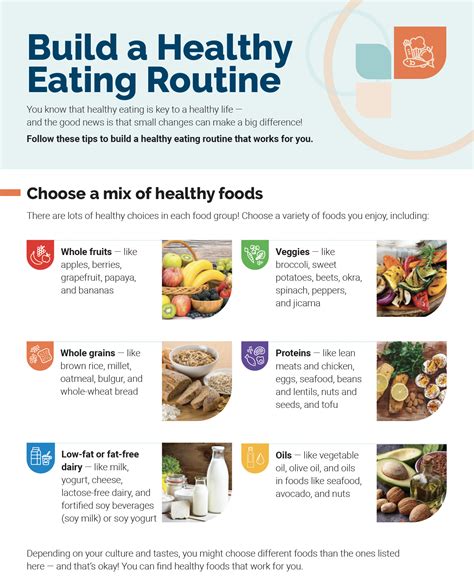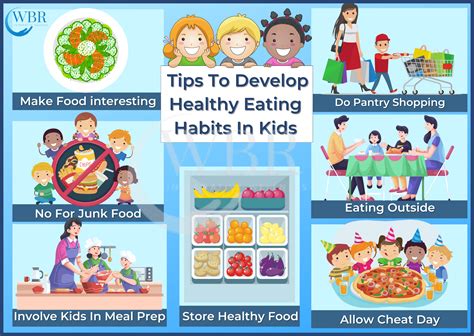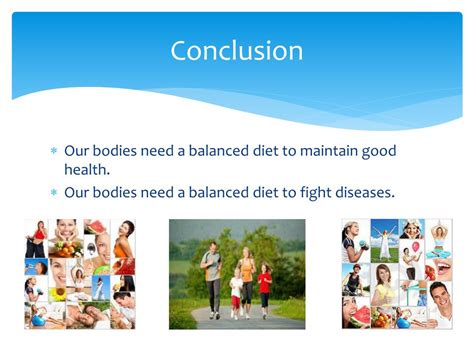Intro
Eating a healthy diet is one of the most important things you can do for your overall health and wellbeing. A healthy diet provides your body with the essential nutrients, vitamins, and minerals it needs to function properly, and can help to reduce the risk of chronic diseases such as heart disease, diabetes, and certain types of cancer. In addition to the physical benefits, healthy eating can also have a positive impact on mental health, improving mood, energy levels, and cognitive function. With so many different diets and eating plans available, it can be difficult to know where to start, but by focusing on whole, unprocessed foods and making a few simple changes to your daily routine, you can set yourself on the path to a healthier, happier you.
Healthy eating is not just about cutting out unhealthy foods, but also about incorporating a variety of nutritious foods into your diet. This includes fruits, vegetables, whole grains, lean proteins, and healthy fats, which provide essential nutrients and fiber. Aiming to include a rainbow of colors on your plate is a great way to ensure you are getting a broad range of vitamins and minerals, as different colored fruits and vegetables contain different nutrients. For example, leafy green vegetables such as spinach and kale are rich in iron and calcium, while orange fruits and vegetables such as carrots and sweet potatoes are high in vitamin A.
In today's fast-paced world, it can be tempting to rely on convenience foods and takeout, but these foods are often high in unhealthy ingredients such as salt, sugar, and saturated fat. By taking the time to plan and prepare healthy meals, you can save money, reduce your environmental impact, and improve your overall health. Even small changes, such as packing a healthy lunch instead of buying one, or cooking at home instead of ordering takeout, can make a big difference over time. With a little practice and patience, healthy eating can become a sustainable and enjoyable part of your daily routine.
Benefits of Healthy Eating

Key Components of a Healthy Diet
A healthy diet should include a variety of whole, unprocessed foods, including: * Fruits: aim for at least 5 servings a day, including a range of colors and types * Vegetables: aim for at least 5 servings a day, including dark leafy greens, colorful vegetables, and legumes * Whole grains: choose whole grains such as brown rice, quinoa, and whole wheat bread instead of refined grains * Lean proteins: include a variety of lean protein sources such as poultry, fish, beans, and lentils * Healthy fats: include sources of healthy fats such as nuts, seeds, avocados, and olive oilHow to Make Healthy Eating a Part of Your Daily Routine

Common Barriers to Healthy Eating
Despite the many benefits of healthy eating, there are often barriers that can make it difficult to stick to a healthy diet. Some common barriers include: * Lack of time: with busy schedules, it can be tempting to rely on convenience foods and takeout * Lack of knowledge: not knowing how to cook or prepare healthy meals can make it difficult to get started * Limited access: living in areas with limited access to healthy food options can make it difficult to make healthy choices * Emotional eating: using food as a way to cope with emotions such as stress, anxiety, or boredom can lead to unhealthy eating habitsOvercoming Barriers to Healthy Eating

Healthy Eating on a Budget
Eating a healthy diet doesn't have to break the bank. Some tips for healthy eating on a budget include: * Plan your meals: take the time to plan and prepare healthy meals for the week ahead * Shop smart: make a list and stick to it when you're at the grocery store, choosing whole, unprocessed foods whenever possible * Buy in bulk: buying items such as grains, beans, and nuts in bulk can save money * Use coupons: look for coupons and sales on healthy food itemsHealthy Eating for Different Life Stages

Healthy Eating and Mental Health
There is a strong link between healthy eating and mental health. Some tips for using healthy eating to support mental health include: * Eat a balanced diet: aim to eat a balanced diet that includes a variety of whole, unprocessed foods * Stay hydrated: drink plenty of water throughout the day to stay hydrated and support overall health * Limit sugary drinks and snacks: sugary drinks and snacks can have a negative impact on mental health * Get enough sleep: aim to get 7-9 hours of sleep per night to support mental healthConclusion and Next Steps

We invite you to share your thoughts and experiences with healthy eating in the comments below. What are some of your favorite healthy recipes or tips for making healthy eating a part of your daily routine? Share your stories and help inspire others to make healthy changes in their lives.
What are the benefits of healthy eating?
+Healthy eating has numerous benefits, including reducing the risk of chronic diseases, improving mental health and wellbeing, and increasing energy levels and cognitive function.
How can I make healthy eating a part of my daily routine?
+Start by planning your meals, shopping smart, and cooking at home. You can also pack healthy snacks and stay hydrated by drinking plenty of water throughout the day.
What are some common barriers to healthy eating?
+Common barriers to healthy eating include lack of time, lack of knowledge, limited access to healthy food options, and emotional eating. However, there are many strategies that can help to overcome these barriers and make healthy eating a part of your daily routine.
How can I eat healthy on a budget?
+Eating healthy on a budget can be achieved by planning your meals, shopping smart, buying in bulk, and using coupons. You can also find healthy alternatives to your favorite convenience foods and takeout.
What is the link between healthy eating and mental health?
+There is a strong link between healthy eating and mental health. Eating a balanced diet that includes a variety of whole, unprocessed foods can help to support mental health and wellbeing, while a diet that is high in sugary drinks and snacks can have a negative impact.
